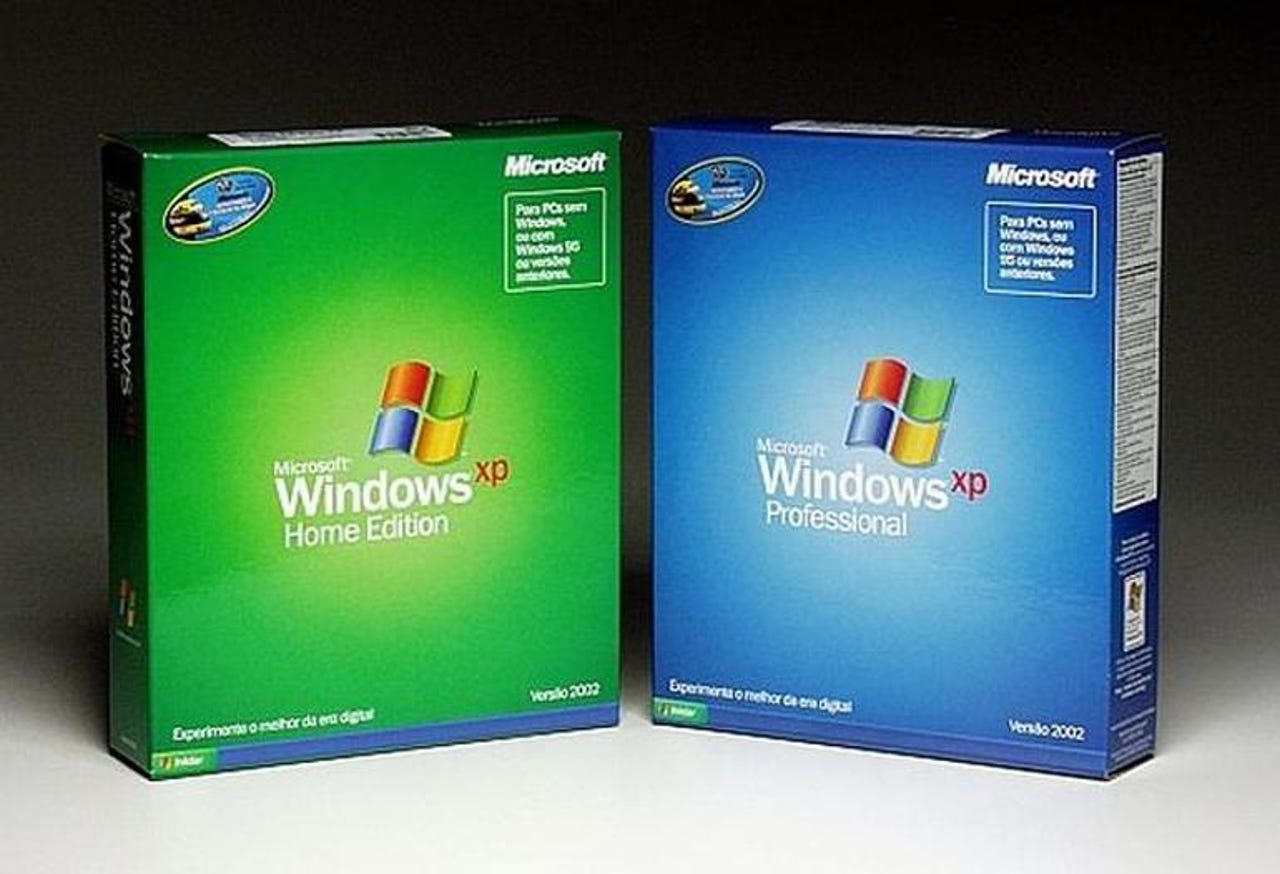Windows XP: Why it won't die for years to come


Old versions of Windows just won't go away.
Earlier this week Microsoft ended its support for Vista, which means the decade-old operating system will no longer get security updates. And while this may spur some companies to finally kick out their old devices, there are still plenty still holding onto Vista and XP -- and perhaps even older versions of Windows.
"I think if you dug down deep you'd find some Windows 98 in places too," said Stephen Kleynhans, research VP at analyst Gartner.
Enterprise Software
Just how much old Windows is in use is actually unclear: according to research by Spiceworks, just over half of businesses still have at least one PC running Windows XP and nearly one in 10 still have Windows Vista running somewhere too.
Spiceworks calculates that Windows XP is running on 14 percent of all PCs in businesses worldwide, while Windows Vista is only running on one percent. In contrast, Windows 7 has the highest share, running on 69 percent of business PCs. Windows 10 currently has nine percent of the overall share, followed by Windows 8 at five percent, according to the research.
It's worth noting these numbers for XP are higher than other sources which paint a slightly different picture: NetMarketShare says that Windows XP makes up around seven percent of PCs accessing the internet (Vista is a rounding error at less than one percent), with Windows 7 accounting for half and Windows 10 a quarter. Other stats show XP with a much lower share still, as my colleague Ed Bott has explored elsewhere.
Not in front of the users
Still, considering that nearly 90 percent of IT professionals surveyed by Spiceworks said they are concerned about the risks of running unsupported operating systems such as Windows XP and Windows Vista, why are they still being used at all?
"The reality is we tend to think of PCs as devices that sit in front of users. If you look at that class of device there's practically no XP left, but there are PCs used in all kinds of different scenarios in companies," said Gartner's Kleynhans.
That might be a Windows XP PC running a security system and monitoring the card swipes at all the doors in an office, or a PC monitoring elevators and recording a log. If those PCs don't have new applications installed on them, and are not connected to the internet, most companies don't see good reasons to replace them.
"Those machines might have been there 10 years, and they're running Windows XP, and they will probably run that until the day they're finally disposed of because there's no reason to spend any money or any effort to change it," said Kleynhans.
For example, Kleynhans encountered one organization using heavy equipment that needed to set up using software tools that only ran on Windows XP.
"Most larger companies probably have one or two things like that hanging around in the periphery. It's not an indication they are strategically sticking with XP. That's a tactical reality," he said.
However, that doesn't mean it's would be a good idea to use an out-of-support version of Windows on a PC used for standard office work.
"That would just be dumb, quite frankly," said Kleynhans. "That would be a bad thing to be doing because there is no security left, no fixes coming down the pike. You should at least be trying to keep somewhat up-to-date with a machine that some individual cares about to do their daily job."
One area where XP has a stronghold is perhaps with consumers, Kleynhans said, who don't think about security issues, and are more concerned with the few dollars it will cost them or the time and effort to do an update rather than the potential problems. And chances are nothing will make them upgrade. "If you haven't converted by now there's nothing that will force you to convert at this point until the hardware physically dies."
XP has stuck around so long because it was an extremely popular version of Windows -- certainly compared to its successor, Vista. And Windows 7 is similarly popular, which means it may also be with us for quite some time.
"There will be similar cases to the ones we see with XP where the machine is doing its job sitting in a corner, so why would we ever touch it? Seven years from now, 10 years from now, we'll probably be looking at some survey and it says look at all this Windows 7 that's still out there," said Kleynhans.
"It's not that companies will say en masse that they are not going to Windows 10 -- in fact we are seeing the exact opposite: we are seeing a very positive response. But there will be some places in the company where they decide, for whatever reason, to keep some Windows 7 in that corner."
Read more on Windows
- Microsoft's rumored Spring event may focus around Windows 10 Cloud
- Windows 10 Creators Update: Now Cortana can turn your Raspberry Pi into a virtual assistant
- Microsoft releases first Windows 10 'Redstone 3' PC test build
- Microsoft opens the doors to its Windows Insider for Business program
- Windows 10 Creators Update: Here's what to look out for (TechRepublic)
- How to use Windows 10 Dynamic Lock -- and just walk away (CNET)